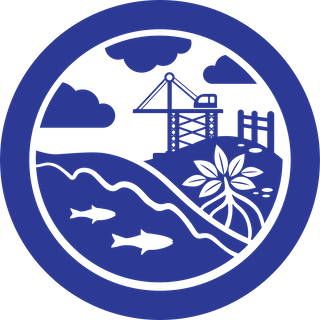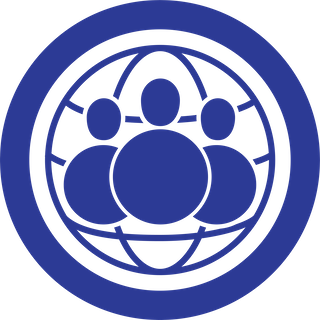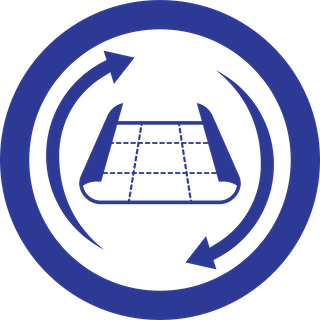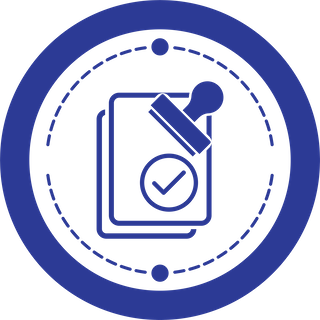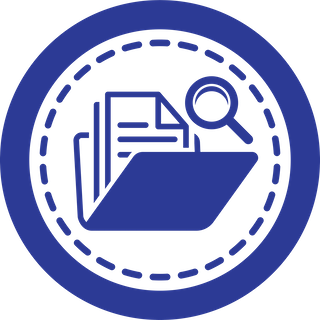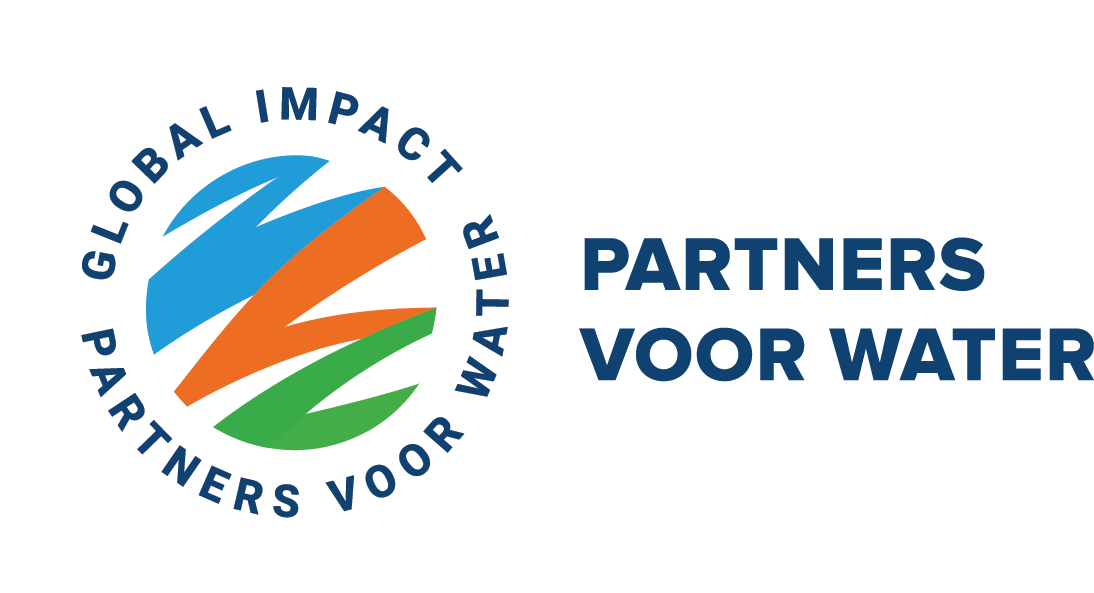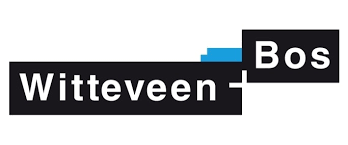Difference between revisions of "ICZM in Indonesia"
(→How to Apply ICZM) |
(Tag: Visual edit) |
||
| (36 intermediate revisions by 2 users not shown) | |||
| Line 1: | Line 1: | ||
{{English-Bahasa-box|english_link= ICZM in Indonesia | indonesian_link= ICZM di Indonesia}} | {{English-Bahasa-box|english_link= ICZM in Indonesia | indonesian_link= ICZM di Indonesia}} | ||
| + | Coastal resources in Indonesia are used by the local communities for obtaining food, fodder, fuelwood, shelter and a variety of other services. With high biological diversity and endemism, coastal zones are used as repositories for the effluent of industrial processes and domestic wastes and also as prime sites for reclamation to create land for industry, agriculture, and settlement. In areas such as Java, the expansion of large cities disturb the coastal zone. Indonesia’s population is increasing at an alarming rate and will be 270 million in 2020 and so demographic pressures are pronounced more in Indonesia. About 64% of Indonesian people live in and around the coastal areas.<ref>Sukardjo S. (1999) Integrated Coastal Zone Management (ICZM) in Indonesia. In: Salomons W., Turner R.K., de Lacerda L.D., Ramachandran S. (eds) Perspectives on Integrated Coastal Zone Management. Environmental Science. Springer, Berlin, Heidelberg</ref> | ||
| − | + | === '''Coastal Zone Problems in Indonesia''' === | |
| − | + | The consequences of coastal exploitation in Indonesia are very complex. The key resource use problems and conflicts in the coastal zone in Indonesia include: | |
| − | = | + | * loss of mangrove forest and tidal swamplands which support traditional fisheries, |
| − | + | * improper utilization of coastal zone by "money holders" (not coastal inhabitant - example conversion of mangrove forest for Tambak), | |
| + | * declining socio-economic livelihood status of the already poor inhabitants of coastal villages, | ||
| + | * increasing coastal population, | ||
| + | * overfishing and use of destructive methods, | ||
| + | * lack of comprehensive ecological information concerning the coastal zone/resources for developers an~ decision-makers at the provincial level, | ||
| + | * the relevance of agricultural policy for income and food security<ref>Sukardjo S. (1999) Integrated Coastal Zone Management (ICZM) in Indonesia. In: Salomons W., Turner R.K., de Lacerda L.D., Ramachandran S. (eds) Perspectives on Integrated Coastal Zone Management. Environmental Science. Springer, Berlin, Heidelberg</ref>. | ||
| − | + | The concept of ICZM has been known in international forums since 1992. Almost in most international conventions on marine and environmental management recommend the use of the ICZM concept in the management of marine resources and other marine activities. Much success has been achieved by coastal countries in the world in implementing the ICZM concept. It is therefore appropriate for Indonesia to apply the ICZM concept as an alternative solution to the problems it faces in the management of marine and coastal resources and other activities in the marine sector.<ref>http://oseanografi.lipi.go.id/dokumen/oseana_xxxi(1)21-26.pdf</ref> | |
| − | + | ===The Integrated Coastal Zone Management (ICZM) for the Northern Coast of Central Java === | |
| − | + | In March 2019 the Integrated Coastal Zone Management (ICZM) for the Northern Coast of Central Java, Indonesia started. The project started introducing Central Java Province (CJP) to the concepts of ICZM and understanding the coastal issues, the mechanisms and tools to influence these mechanisms. Also it was guiding the province in the process of becoming a competent authority leading ICZM in Central Java so they can exercise their mandate on this matter. | |
| − | |||
| − | |||
| − | |||
| − | === | ||
| − | Coastal | ||
| − | + | Unfortunately the global pandemic has halted the project while it was entering its second year. [http://pusdataru.jatengprov.go.id/ PUSDATARU] (department of CJP) indicated that they were no longer able to support the project due to budget re-allocation for the mitigation of the Covid-19 pandemic. As a consequence it was no longer feasible to continue the project. | |
| − | |||
| − | + | To make sure that the content and lessons learned within the project are not lost it was decided to make a final content report. This report is not based on new research, except for some spatial plan and legal tools analysis. It shows international ICZM perspectives, summarizes the findings on the coastal problems and bottlenecks within the project and gives conclusions and recommendations. It was presented to CJP on 28 September 2021. A presentation is added as in the Annex. | |
| − | + | The table of content below is based on the Integrated Coastal Zone Management Final content report<ref>Victor Coenen (Witteveen+Bos), Susan Arts (TwynstraGudde, Jaap de Heer (TwynstraGudde), Mugy Grimwaldy (Bita Bina Semesta) and Henni Hendarti (Deltares), Date 21-9-2021</ref> with additional extra resources. | |
| − | |||
| − | |||
| − | |||
| − | |||
| − | |||
| − | |||
| − | |||
| − | |||
| − | |||
| − | |||
| − | |||
| − | |||
| − | |||
| − | |||
{| class="wikitable" | {| class="wikitable" | ||
| − | + | |+'''Table of Content''' | |
| − | | | + | ![[File:2 Pengelolaan Zona Pantai.png|center|frameless|100x100px]]'''<sub>[[2. ICZM: International perspective]]</sub>''' |
| − | |''' | + | ![[File:Stakeholders in ICZM.png|center|frameless|100x100px]][[2. Institutions|'''3. Institutions''']] |
| − | | | + | ![[File:9 Masterplan.png|center|frameless|100x100px]]<sub>[[3. Analysis of coastal spatial plans|4. Analysis of coastal spatial plans]]</sub> |
| − | | | + | ![[File:11 Regulation.png|center|frameless|100x100px]]<sub>[[4. Analysis of legal tools|5. Analysis of legal tools]]</sub> |
| − | | | + | ![[File:12 Study Case.png|center|frameless|100x100px]][[7. Annexes & Presentations|'''6. Annexes & Presentations''']] |
| − | |[ | ||
|} | |} | ||
| + | [[File:Logo Partners Voor Water.png|right|frameless|250x250px]] | ||
| − | == | + | ===== Acknowledgements ===== |
| − | + | [https://www.partnersvoorwater.nl/ '''Partners for Water (Partners voor Water)'''] | |
| − | |||
| − | |||
| − | |||
| − | |||
| − | |||
| − | |||
| − | |||
| − | |||
| − | |||
| − | |||
| − | |||
| − | |||
| − | |||
| − | |||
| − | |||
| − | |||
| − | |||
| − | |||
| − | |||
| − | |||
| − | |||
| − | + | Partners for Water is the program for parties in the Dutch water sector with international ambitions. For more than ten years, Partners for Water has been supporting innovative projects by collaborating parties abroad. With knowledge, advice, financing and networks. | |
| − | |||
| − | |||
| − | |||
| − | |||
| − | |||
| − | |||
| − | |||
| − | |||
| − | + | [https://twynstra.com/#2 '''TwynstraGudde'''] | |
| + | [[File:Twynstra logo.png|right|frameless]] | ||
| + | TwynstraGudde is the leading partner of the ICZM in Northern Coastal of Central Java Project. Twynstra Gudde’s expertise is in strategy, organisation and management, i.e developing knowledge and capacity building and also have international experience, such as implementing the Bangladesh Delta Plan 2100 project. Within the ICZM in Central Java project, TwynstraGudde's role is to advise on and provide coaching for capacity building and knowledge development, e.g. institutional capacity, connective capacity, strategy forming, stakeholder management and financing<ref>https://twynstra.com/twynstra-gudde-wins-tender-for-coastal-zone-management-project-in-indonesia/</ref>. | ||
| − | + | [[File:Witteveen+Bos logo.png|right|frameless]]'''[https://www.witteveenbos.com/about-us/ Witteveen+Bos]''' | |
| − | + | Witteveen+Bos is an engineering and consultancy firm with expertise in supporting partners to overcome challenging problems in water, infrastructure, the environment and construction. Witteveen has had experiences working in various projects in Java. Within the project, Witteveen+Bos takes the role of operational project lead and provides the technical expertise and knowledge as well as experience of coastal development. | |
| − | |||
| − | |||
| − | |||
| − | + | '''[https://www.bita.id/bita-bina-semesta/ Bita Bina Semesta]''' | |
| − | + | [[File:Bita-bbs logo.png|right|frameless]] | |
| − | + | PT BITA BINA SEMESTA/BBS is an Indonesian National Consultant Company specializing on 'front end' type of works, including planning and environmental studies for power plant development, mineral and natural resource development, urban development, infrastructure and industrial development. Bita's role in the project is to support studies and planning towards the Central Java ICZM masterplan. | |
| − | | | ||
| − | | | ||
| − | |||
| − | |||
| − | + | [[File:Center for ICZM UNDIP Logo.png|right|frameless]] | |
| − | [https:// | + | '''[https://iczm.undip.ac.id/ Center for ICZM, Diponegoro University]''' |
| − | + | Center for ICZM UNDIP is is a research center that focuses on integrated coastal area management in Indonesia. Within the project, the research center works together with the Central Java Provincial Government to lead in the preparation of the Brebes Regency master plan in 2021. | |
| − | [ | + | ===== Media ===== |
| + | * [https://jatengprov.go.id/publik/belanda-pertajam-kerja-sama-revitalisasi-pantura-jawa/ "The Netherlands Sharpens Cooperation for the Revitalization of the Java Coast", Jan 30th 2018 | Central Java Government Official Website] | ||
| + | * [https://humas.jatengprov.go.id/detail_berita_gubernur?id=2450 "ICZM Team Ready To Handle Coastal Areas of Central Java", March 28th, 2019 | Central Java Government Public Relations Website] | ||
| − | == References == | + | ===== References ===== |
| + | <references/> | ||
Latest revision as of 05:25, 5 October 2021
| |
Coastal resources in Indonesia are used by the local communities for obtaining food, fodder, fuelwood, shelter and a variety of other services. With high biological diversity and endemism, coastal zones are used as repositories for the effluent of industrial processes and domestic wastes and also as prime sites for reclamation to create land for industry, agriculture, and settlement. In areas such as Java, the expansion of large cities disturb the coastal zone. Indonesia’s population is increasing at an alarming rate and will be 270 million in 2020 and so demographic pressures are pronounced more in Indonesia. About 64% of Indonesian people live in and around the coastal areas.1
Contents
Coastal Zone Problems in Indonesia
The consequences of coastal exploitation in Indonesia are very complex. The key resource use problems and conflicts in the coastal zone in Indonesia include:
- loss of mangrove forest and tidal swamplands which support traditional fisheries,
- improper utilization of coastal zone by "money holders" (not coastal inhabitant - example conversion of mangrove forest for Tambak),
- declining socio-economic livelihood status of the already poor inhabitants of coastal villages,
- increasing coastal population,
- overfishing and use of destructive methods,
- lack of comprehensive ecological information concerning the coastal zone/resources for developers an~ decision-makers at the provincial level,
- the relevance of agricultural policy for income and food security2.
The concept of ICZM has been known in international forums since 1992. Almost in most international conventions on marine and environmental management recommend the use of the ICZM concept in the management of marine resources and other marine activities. Much success has been achieved by coastal countries in the world in implementing the ICZM concept. It is therefore appropriate for Indonesia to apply the ICZM concept as an alternative solution to the problems it faces in the management of marine and coastal resources and other activities in the marine sector.3
The Integrated Coastal Zone Management (ICZM) for the Northern Coast of Central Java
In March 2019 the Integrated Coastal Zone Management (ICZM) for the Northern Coast of Central Java, Indonesia started. The project started introducing Central Java Province (CJP) to the concepts of ICZM and understanding the coastal issues, the mechanisms and tools to influence these mechanisms. Also it was guiding the province in the process of becoming a competent authority leading ICZM in Central Java so they can exercise their mandate on this matter.
Unfortunately the global pandemic has halted the project while it was entering its second year. PUSDATARU (department of CJP) indicated that they were no longer able to support the project due to budget re-allocation for the mitigation of the Covid-19 pandemic. As a consequence it was no longer feasible to continue the project.
To make sure that the content and lessons learned within the project are not lost it was decided to make a final content report. This report is not based on new research, except for some spatial plan and legal tools analysis. It shows international ICZM perspectives, summarizes the findings on the coastal problems and bottlenecks within the project and gives conclusions and recommendations. It was presented to CJP on 28 September 2021. A presentation is added as in the Annex.
The table of content below is based on the Integrated Coastal Zone Management Final content report4 with additional extra resources.
| 2. ICZM: International perspective | 3. Institutions | 4. Analysis of coastal spatial plans | 5. Analysis of legal tools | 6. Annexes & Presentations |
|---|
Acknowledgements
Partners for Water (Partners voor Water)
Partners for Water is the program for parties in the Dutch water sector with international ambitions. For more than ten years, Partners for Water has been supporting innovative projects by collaborating parties abroad. With knowledge, advice, financing and networks.
TwynstraGudde is the leading partner of the ICZM in Northern Coastal of Central Java Project. Twynstra Gudde’s expertise is in strategy, organisation and management, i.e developing knowledge and capacity building and also have international experience, such as implementing the Bangladesh Delta Plan 2100 project. Within the ICZM in Central Java project, TwynstraGudde's role is to advise on and provide coaching for capacity building and knowledge development, e.g. institutional capacity, connective capacity, strategy forming, stakeholder management and financing5.
Witteveen+BosWitteveen+Bos is an engineering and consultancy firm with expertise in supporting partners to overcome challenging problems in water, infrastructure, the environment and construction. Witteveen has had experiences working in various projects in Java. Within the project, Witteveen+Bos takes the role of operational project lead and provides the technical expertise and knowledge as well as experience of coastal development.
PT BITA BINA SEMESTA/BBS is an Indonesian National Consultant Company specializing on 'front end' type of works, including planning and environmental studies for power plant development, mineral and natural resource development, urban development, infrastructure and industrial development. Bita's role in the project is to support studies and planning towards the Central Java ICZM masterplan.
Center for ICZM, Diponegoro University
Center for ICZM UNDIP is is a research center that focuses on integrated coastal area management in Indonesia. Within the project, the research center works together with the Central Java Provincial Government to lead in the preparation of the Brebes Regency master plan in 2021.
Media
- "The Netherlands Sharpens Cooperation for the Revitalization of the Java Coast", Jan 30th 2018 | Central Java Government Official Website
- "ICZM Team Ready To Handle Coastal Areas of Central Java", March 28th, 2019 | Central Java Government Public Relations Website
References
- ↑ Sukardjo S. (1999) Integrated Coastal Zone Management (ICZM) in Indonesia. In: Salomons W., Turner R.K., de Lacerda L.D., Ramachandran S. (eds) Perspectives on Integrated Coastal Zone Management. Environmental Science. Springer, Berlin, Heidelberg
- ↑ Sukardjo S. (1999) Integrated Coastal Zone Management (ICZM) in Indonesia. In: Salomons W., Turner R.K., de Lacerda L.D., Ramachandran S. (eds) Perspectives on Integrated Coastal Zone Management. Environmental Science. Springer, Berlin, Heidelberg
- ↑ http://oseanografi.lipi.go.id/dokumen/oseana_xxxi(1)21-26.pdf
- ↑ Victor Coenen (Witteveen+Bos), Susan Arts (TwynstraGudde, Jaap de Heer (TwynstraGudde), Mugy Grimwaldy (Bita Bina Semesta) and Henni Hendarti (Deltares), Date 21-9-2021
- ↑ https://twynstra.com/twynstra-gudde-wins-tender-for-coastal-zone-management-project-in-indonesia/
